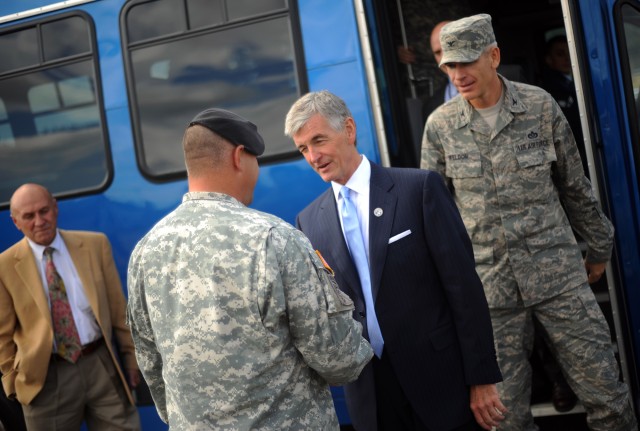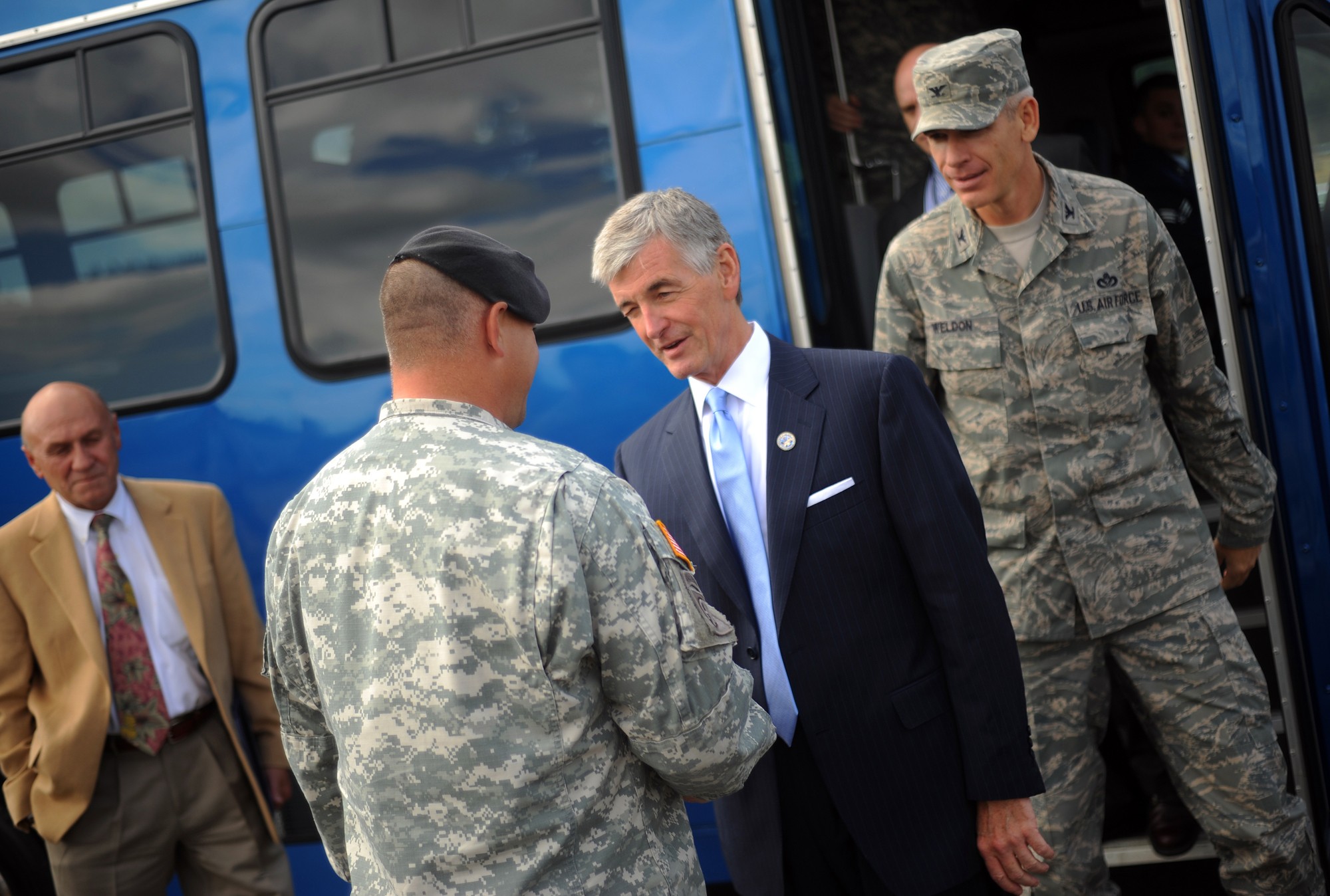JOINT BASE LEWIS-MCCHORD, Wash. -- The secretary of the Army spent two days at Joint Base Lewis-McChord this week, getting a firsthand view of its services and facilities. John McHugh shared his positive outlook Aug. 26 near the end of his first visit to the installation in an interview with the Northwest Guardian.
McHugh said as the service's senior civilian leader, he was strongly committed to continue making Soldier and family services a top priority.
As a result of the current conflicts in Iraq and Afghanistan, the Army has made strides in how it welcomes Soldiers home after deployments and reintegrates them into garrison life, McHugh said. Easing redeploying Soldiers' reunions with family members in revamped reintegration programs has been a focus for JBLM, reflecting Army-wide improvements in sustaining the force.
"For a long time, we, if not overlooked, certainly misunderstood the complexity of bringing a Soldier back home, reintroducing them into a totally different environment than he or she had been experiencing during that deployment, helping the families to come together as well," McHugh said.
"They're human beings and it's not just a switch you can turn on or off. We need to ensure they have the support and facilities necessary to do that," he said. "Obviously, we've come a long way."
Though Soldier- and family-support programs like reintegration have been clear Army successes, all spending will undergo scrutiny as Congress reviews funding in the future. But those programs that contribute to the health of Soldiers and their families will maintain their high priorities despite political pressure.
"When it comes to any budget cuts, should that time arrive, that's the very last place we'll look; not the first," McHugh said, "and that's different than years past because I think there was a real tendency to go to the kinds of dollars that we're supporting in those programs."
McHugh called Secretary of Defense Robert M. Gates' recent belt-tightening remarks "an appropriate step toward preparing" for next year's budget. He said Gates was misunderstood as advocating budget cutting when instead he encouraged the services to identify efficiencies. The difference, McHugh said, is that the Army gets to keep the money it saves.
"I think everything we do to build up the fences against any kind of future budget actions will help us save those programs, protect those programs in future, and that's a big part of our intent," he said.
McHugh cited a pilot study called "Confidential Alcohol Treatment and Evaluation Program" as an example of the types of assistance the Army plans to provide Soldiers in future. The study so far has shown "great promise," he said.
"We want to ensure Soldiers that if they reach out and get help before they're in too much trouble that it's not going to be career-threatening and we're not going to kick them out of the Army necessarily," he said, "but rather give them a chance to rehabilitate and reclaim their lives and reclaim their Army career."
Two weeks ago, McHugh extended the study and said if positive results continue, he will seek to make CATEP permanent. The program demonstrates Army outreach and provides a second chance to Soldiers who have sacrificed for their country.
"I've had a chance to go to Iraq 15 times now and Afghanistan five and it always takes my breath away to get out there and see these young Soldiers, doing incredibly important, often incredibly dangerous things with such competence and such bravery," McHugh said. "You can't understand the depth of it until you really see it .. They really create a debt that we can never truly repay."
(Don Kramer is a reporter with Joint Base Lewis-McChord's weekly newspaper, the Northwest Guardian.)


Social Sharing